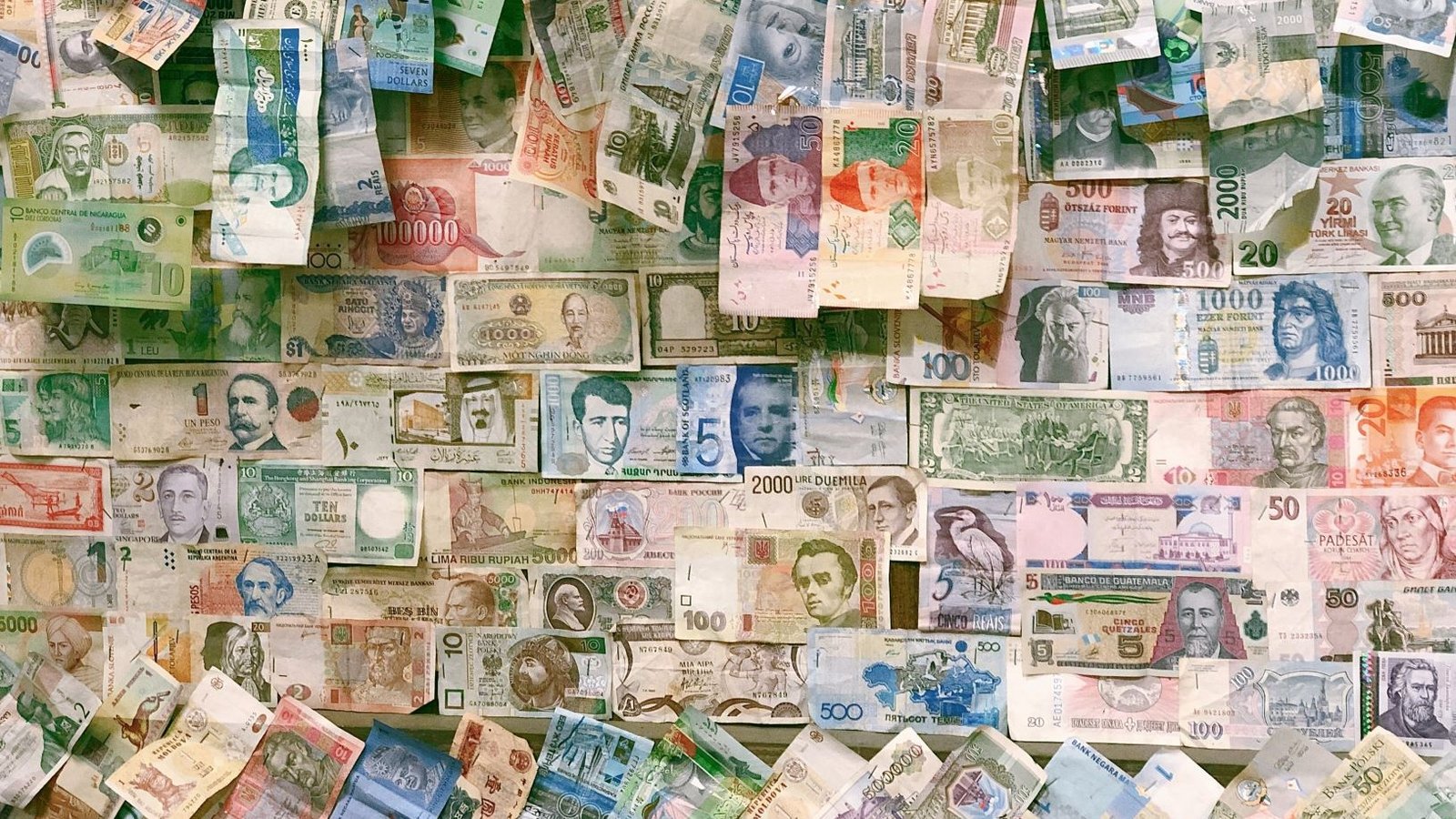Introduction
Currency exchange is an essential service for anyone dealing with foreign currencies, whether for travel, business, or remittances. In Pakistan, the landscape of currency exchange is a dynamic one, influenced by economic policies, market conditions, and global events. This guide will walk you through everything you need to know about Currency Exchange in Pakistan, including where to exchange money, the role of the State Bank, and tips for getting the best rates.
1. Understanding Currency Exchange
1.1 What is Currency Exchange?
Currency exchange, also known as foreign exchange (forex), is the process of converting one currency into another. This service is crucial for international trade, travel, and remittances.
1.2 Importance of Currency Exchange in Pakistan
Currency exchange plays a vital role in Pakistan’s economy, facilitating international trade, remittances from overseas Pakistanis, and tourism.
2. The Role of the State Bank of Pakistan
2.1 Regulatory Authority
The State Bank of Pakistan (SBP) is the primary regulatory authority overseeing currency exchange operations in the country. It ensures that exchange companies comply with the law and maintain transparency.
2.2 Exchange Rate Management
The SBP also manages the exchange rates by intervening in the forex market to stabilize the Pakistani Rupee (PKR) against other currencies.
3. Where to Exchange Currency in Pakistan
3.1 Banks
Banks in Pakistan offer currency exchange services, but usually at a higher margin compared to exchange companies. However, they are a reliable and safe option.
3.2 Authorized Exchange Companies
Authorized exchange companies are the most common places for currency exchange. They usually offer better rates than banks and are widely available across the country.
3.3 Airports and Hotels
Airports and hotels also provide currency exchange services, but the rates are typically less favorable due to the convenience they offer.
4. Types of Exchange Rates
4.1 Interbank Rate
The interbank rate is the exchange rate at which banks trade currencies among themselves. It’s usually not available to the general public.
4.2 Open Market Rate
The open market rate is the rate available to the public through exchange companies and banks. This rate fluctuates based on market demand and supply.
4.3 Black Market Rate
The black market rate is an illegal exchange rate offered by unauthorized dealers. It’s often higher than the open market rate but involves significant risk.
5. Factors Influencing Currency Exchange Rates in Pakistan
5.1 Economic Indicators
Inflation, interest rates, and GDP growth are among the key economic indicators that influence currency exchange rates.
5.2 Political Stability
Political events and stability in Pakistan have a direct impact on the value of the Pakistani Rupee.
5.3 Global Market Trends
Global events such as oil price fluctuations, trade wars, and changes in major economies like the US or China can also affect exchange rates in Pakistan.
6. How to Get the Best Exchange Rates
6.1 Timing Your Exchange
Exchange rates fluctuate, so timing your currency exchange can make a significant difference. It’s wise to monitor the rates and exchange when they are favorable.
6.2 Comparing Rates
Always compare rates from different sources, such as banks, exchange companies, and online platforms, to get the best deal.
6.3 Avoiding Hidden Fees
Be aware of hidden fees or charges that some exchange companies might impose. Always ask for the full breakdown of costs before exchanging your money.
7. Legal Considerations for Currency Exchange in Pakistan
7.1 Reporting Requirements
There are legal reporting requirements for large sums of money exchanged or carried in and out of Pakistan. It’s important to be aware of these to avoid penalties.
7.2 Anti-Money Laundering (AML) Regulations
Pakistan has strict AML regulations that apply to currency exchange. These are designed to prevent money laundering and terrorist financing.
8. The Future of Currency Exchange in Pakistan
8.1 Digital Currency Exchange
With the rise of fintech, digital currency exchange platforms are becoming more popular in Pakistan, offering convenience and competitive rates.
8.2 Cryptocurrency and Pakistan
Although currently not regulated, cryptocurrencies are gaining attention in Pakistan. The future might see official frameworks governing the exchange of digital currencies.
9. Risks and Challenges in Currency Exchange
9.1 Fluctuating Rates
Currency exchange rates are highly volatile, and predicting them is challenging. This fluctuation can lead to significant gains or losses.
9.2 Counterfeit Currency
There is a risk of counterfeit currency in the market, especially when dealing with unauthorized dealers. Always exchange with reputable companies.
10. Impact of Currency Exchange on the Economy
10.1 Balance of Payments
Currency exchange influences the balance of payments, affecting how much Pakistan earns and spends internationally.
10.2 Inflation Control
The SBP uses currency exchange as a tool to control inflation by influencing the supply and demand of foreign currencies in the market.
11. Tips for Safe Currency Exchange
11.1 Always Use Authorized Dealers
To avoid scams and counterfeit currency, always use authorized exchange dealers or banks.
11.2 Check Exchange Rates Online
Before heading to an exchange company, check the latest rates online to ensure you’re getting a fair deal.
11.3 Keep Records
Always keep a record of your currency exchange transactions for future reference and legal purposes.
12. Currency Exchange for Travelers
12.1 Best Practices for Tourists
Tourists should exchange a small amount at the airport for immediate needs and the rest at authorized exchange companies for better rates.
12.2 Currency Exchange Apps
Several apps can help travelers find the best exchange rates in Pakistan, offering convenience and savings.
13. Currency Exchange and Remittances
13.1 Role of Remittances
Remittances from overseas Pakistanis are a significant source of foreign exchange. Currency exchange plays a key role in converting these funds into PKR.
13.2 Preferred Channels
Banks and authorized exchange companies are the preferred channels for converting remittances, ensuring safety and compliance with legal requirements.
14. Currency Exchange for Businesses
14.1 Import and Export Transactions
Businesses involved in import and export rely heavily on currency exchange to settle international transactions.
14.2 Hedging Against Currency Risk
To protect against currency fluctuations, businesses can use hedging strategies such as forward contracts or options.
Conclusion
Currency exchange in Pakistan is a vital aspect of the economy, impacting everything from international trade to individual remittances. Understanding the factors that influence exchange rates, knowing where to exchange currency safely, and keeping abreast of market trends are crucial for making informed decisions. Whether you’re a traveler, a business owner, or someone looking to exchange remittances, this guide provides you with the insights needed to navigate the complex world of currency exchange in Pakistan.
15. FAQs about Currency Exchange in Pakistan
Q1: What is the best place to exchange currency in Pakistan?
The best place to exchange currency in Pakistan is at authorized exchange companies, as they offer competitive rates and are regulated by the State Bank of Pakistan.
Q2: Can I exchange money at the airport?
Yes, you can exchange money at the airport, but the rates are usually less favorable compared to exchange companies in the city.
Q3: How can I avoid counterfeit currency?
To avoid counterfeit currency, always exchange money with authorized dealers or banks and check the security features of the notes.
Q4: Is it legal to use the black market for currency exchange?
No, using the black market for currency exchange is illegal and carries significant risks, including legal penalties.
Q5: What factors affect currency exchange rates in Pakistan?
Currency exchange rates in Pakistan are affected by economic indicators, political stability, and global market trends.




